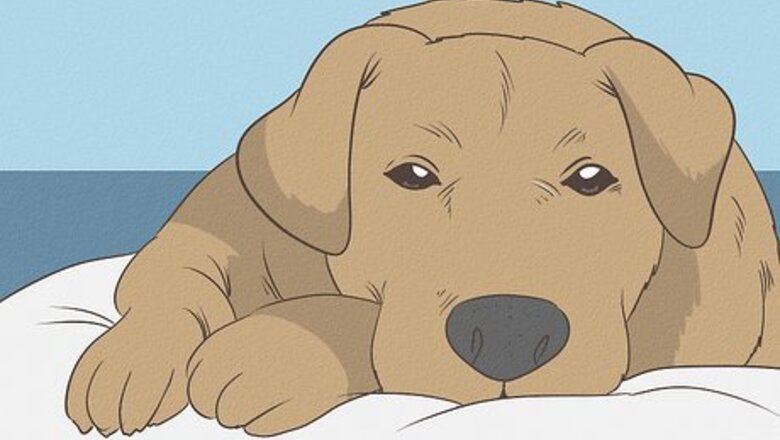
views
Eliminating and Avoiding Hiccups
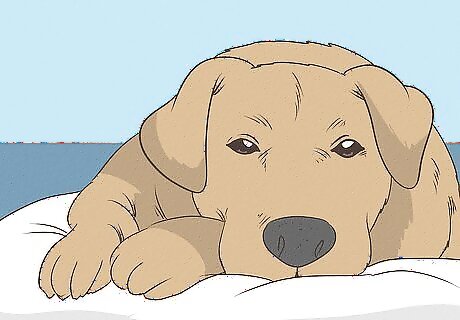
Relax your dog. Just as with hiccups in humans, there is no clear way to stop hiccups in dogs. However, some people swear by total relaxation as a way to eliminate hiccups. Put your dog in a comfortable spot and pet it repeatedly until it is calm. Perhaps if it is relaxed enough the hiccups will end.
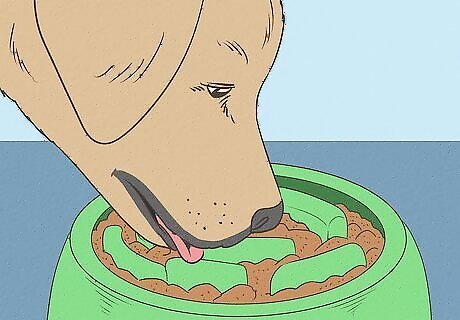
Slow your dog's eating and drinking down. While the underlying cause of hiccups is unknown, some argue that eating quickly, and thus taking in an excessive amount of air when you eat, can increase the likelihood of hiccups. If your dog has a tendency to eat too fast, you can purchase dog feeders designed to slow your dog's eating. There are special dog dishes that make your dog pick up their food one piece of kibble at a time. For example, the “green egg” design with solid plastic flat finger like projections is made specifically to slow a dog's eating down. If your dog drinks too fast, dishes have been designed with plastic projections that force the dog to lap their water slowly. Consider using a DIY solution. Find a large rock (baseball sized or larger) that you can scrub clean and place it in the center of your dog's dish to slow the dog’s eating or drinking. Only do this if your dog won’t take the rock out and play with it, as rocks can damage a dog’s teeth.
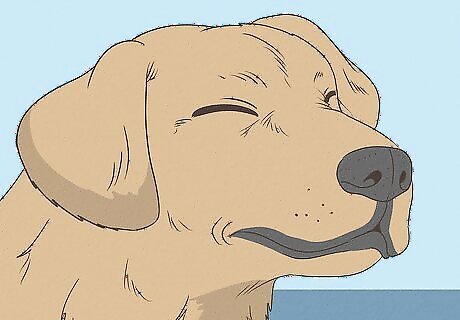
Accept that hiccuping occasionally is normal. For the most part, some hiccuping sessions in dogs are unavoidable. Just remember that the hiccups will eventually run their course without causing any harm to your dog. Hiccups are especially prevalent in puppies. It is perfectly normal for your puppy to hiccup quite a bit.
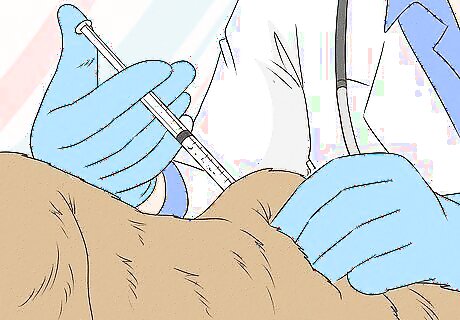
Make sure your dog’s vaccinations are up to date. If you are worried about your dog's lung health, then get the dog checked out by a veterinarian. This way any respiratory illnesses, such as kennel cough or dog influenza, won’t be exacerbated by the hiccuping sessions.
Understanding Hiccups
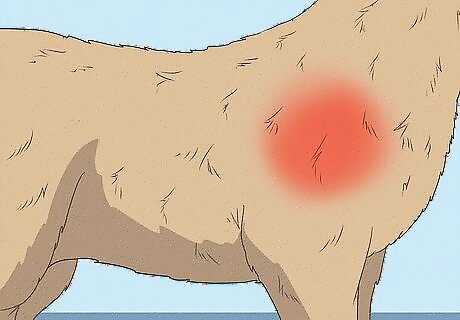
Learn about what is happening when we hiccup. Hiccups occur when the diaphragm, a large muscle that is central to breathing, is irritated and starts uncontrollable spasming. These spasms make the dog take a breath in at the same time as the glottis (the opening above the vocal cords) is closing. This stops the inflow of air and a hiccup occurs.
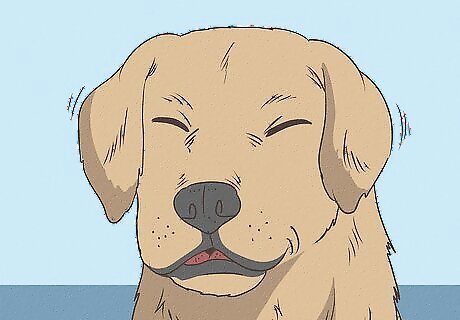
Differentiate between hiccups and reverse hiccups (or sometimes called reverse sneezing). Reverse hiccups are generally caused by an irritation to the throat or the sinuses. The dog takes a number of loud, involuntary breaths to clear the irritation or the sinus passages and it sounds like the air intake that happens at the beginning of a normal hiccup. You may want to get your dog's sinuses looked at by a veterinary professional to rule out a medical condition, such as a sinus infection or a tumor, as the cause.
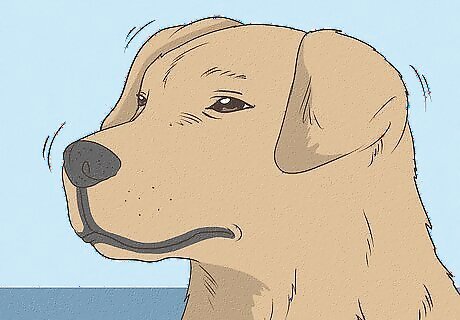
Accept that we don't really know why hiccups happen. Some people believe that hiccups are caused by air being swallowed by the dog when it eats or drinks too fast. In addition, it is thought that becoming overly excited, tired or stressed can also cause hiccups. Whatever the cause, hiccups are a natural bodily function that is not a problem under normal circumstances. Reverse hiccups can be caused by minor tickles or irritants to the throat or sinuses or by infections or diseases of the sinuses or upper respiratory tract.










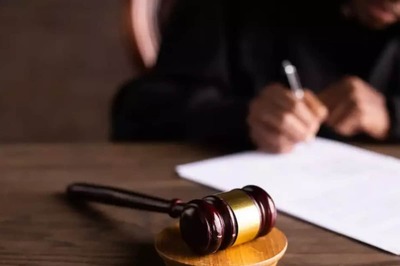

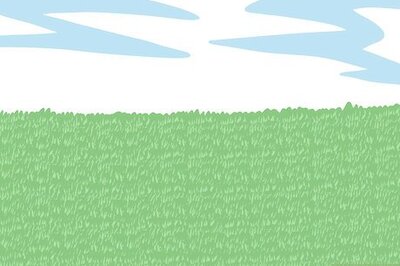
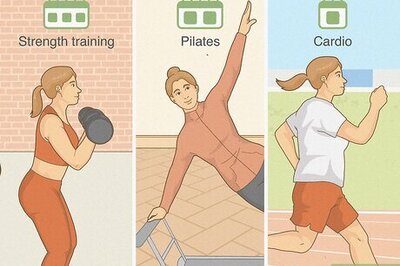
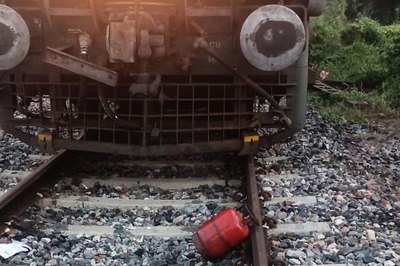


Comments
0 comment